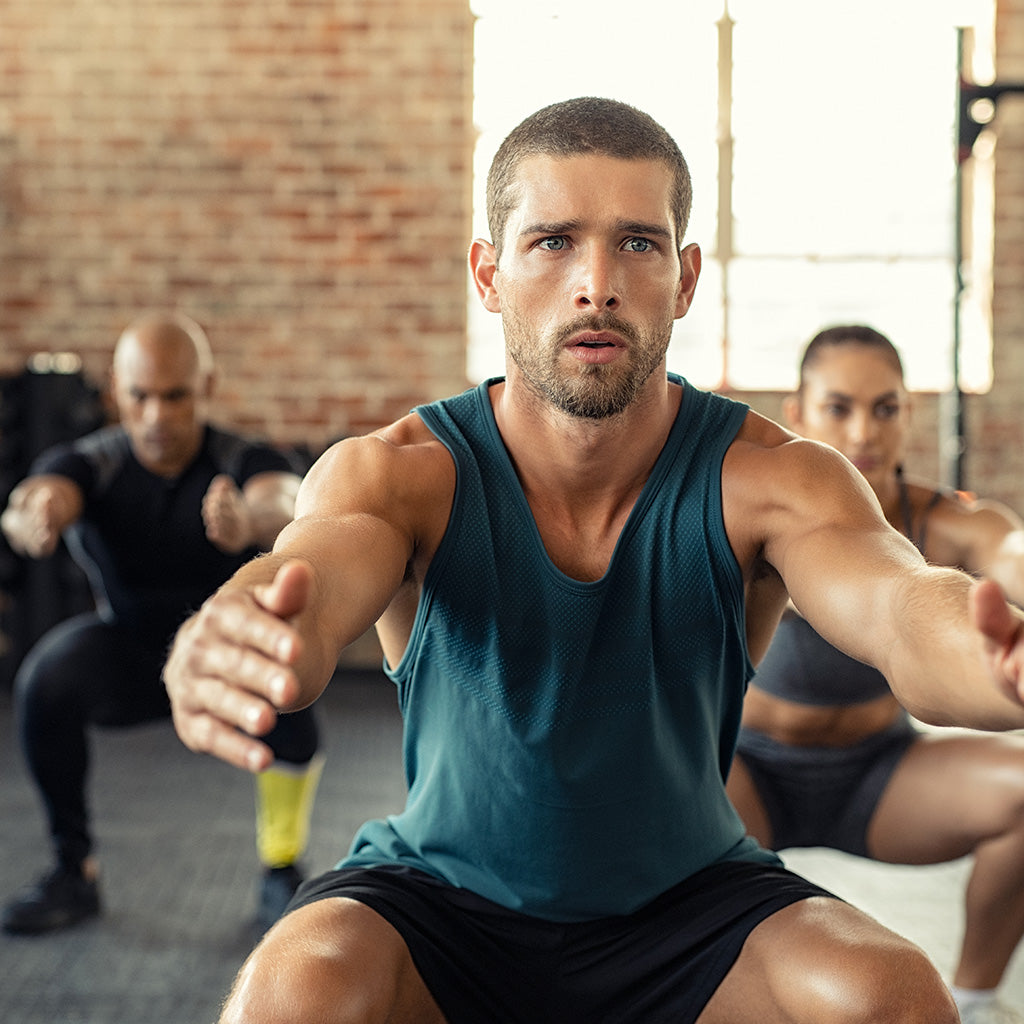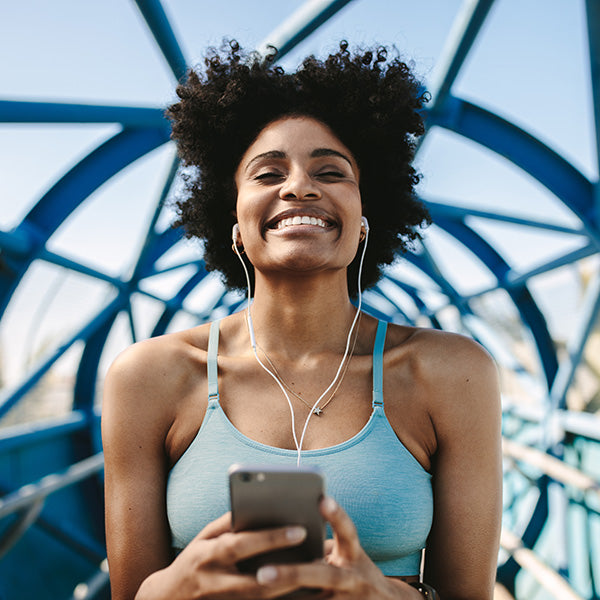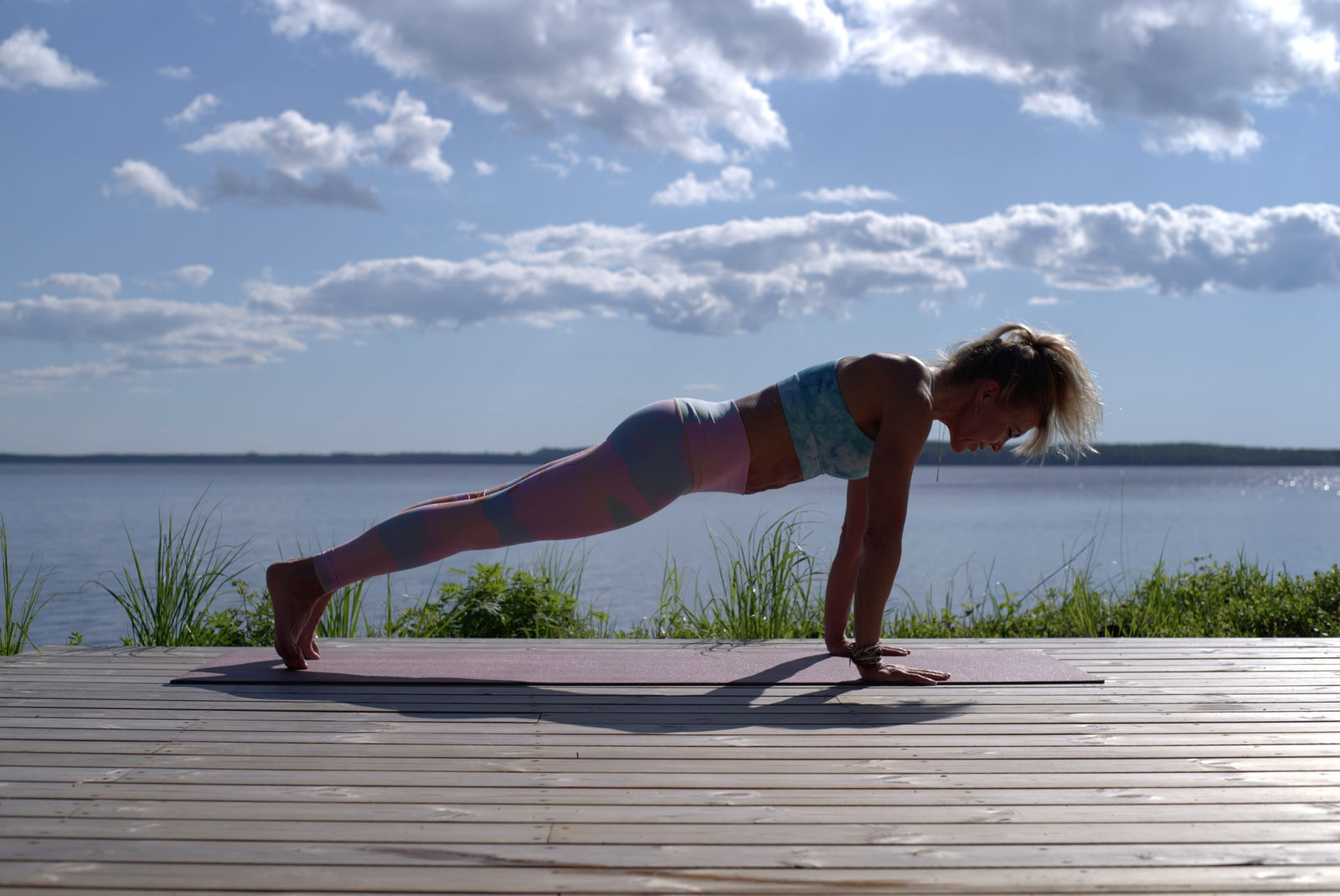In the last article, we learned that exercise can promote higher quality sleep, either by helping people suffering from acute to chronic insomnia fall asleep faster or sleep longer. (Or better yet, both!)
But, does it actually matter what kind of exercise you perform?
Scientific evidence says that vigorous and high-intensity exercise leads to better quality sleep and a generally positive mood. [1]
So what are the various types of exercise promoting the best sleep, i.e. most restorative and uninterrupted? Keep reading!
Walking
Let’s start with the easiest. Why not go for a walk after work or post-dinner? Walking is the easiest way to get that much needed physical activity, not to mention the one that brings instant results. Evidence shows that something as simple as walking can fix chronic insomnia, helping you get that elusive shut-eye… in a faster way and in a longer duration.
Aside from better quality sleep, going out for a walk after dinner can “improve blood sugar control and help ward off type 2 diabetes.” [2]
Other aerobic exercises
Aerobic exercises are activities that get your heart rate pumping. Aside from walking, they’re also in the form of running, cycling, skipping rope, and swimming. These types of activities apparently improve sleep and get rid of insomnia.
Consider performing aerobic exercises for even 5-10 minutes a day to achieve at least 150 minutes of moderate-intensity (or 75 minutes of vigorous-intensity) every week.
While vigorous activity has been found to aid in getting quality sleep, a study also indicates that over time, regular, moderate-intensity aerobic activity increased the length of sleep and decreased the time it took to fall asleep. [3]
This is because a workout’s body-heating effects aid in promoting higher quality sleep, especially when done in the afternoon and anytime beyond that. Exercise increases the temperature of the body during cardiovascular exercise. When the body’s temperature drops post-workout, it gets easier to achieve deeper and more prolonged, undisturbed sleep. [4]
Strength Training
Strength training exercises like burpees, sit-ups and squats don’t just give you stronger and toned muscles. They’re a great solution for insomnia too! According to a study published in the Journal of Strength & Conditioning Research, lifting weights in the morning helped the participants fall asleep 45 minutes faster and that doing it in the evening promoted better sleep quality. [5]
That means the more you do shoulder presses, calf raises (hello leg days), bicep curls, tricep dips, push-ups, squats, and lunges, the faster you’ll fall asleep and the more you’ll enjoy uninterrupted sleep at night.
Yoga
Vigorous activities like aerobic exercises and strength training do, in fact, solve sleeping problems. But did you know that yoga – with its stretching, focus on breathing, and calming meditation – makes a perfect pre-sleep exercise?
According to a survey done by the Centers for Disease Control and Prevention, which analyzes data on sleep and activity, yoga is a fitting activity for promoting better quality sleep. The survey indicates that you can get even more positive effects on sleep (and they’re more evident) for purposeful activities like yoga and running. [6]
Yoga may also fix sleep disorders and ease insomnia. According to a study on the link between yoga and sleep, there were considerable improvements in sleep quality among participants who did a 45-minute yoga session. These improvements were seen in how long the participants took to fall asleep, the duration of their sleep, and how less frequent they woke up in the middle of the night. Indeed, yoga – including breathing exercises and meditation – can ease this nightly distress called insomnia. [7]
Another study also showed that Bikram yoga may steer you clear of tossing and turning throughout the night. Say hello to uninterrupted sleep! [8]
And those who perform yoga every day for eight consecutive weeks enjoy a much better quality of sleep. They tend to fall asleep faster and sleep longer. [9]
Does it matter what time of day you exercise?
Some people like to workout first thing in the morning. (This is, in fact, one of the sleep hacks of some of the most successful people in the world.) While others find that doing it at night helps them sleep better.
But is there an ideal time to work-out to get the best quality sleep?
According to Charlene Gamaldo, M.D. , medical director of Johns Hopkins Center for Sleep at Howard County General Hospital, it doesn’t matter what time of day you perform the exercise. [10]
“Whether it’s in the early morning or close to bedtime, they’ll see a benefit to their sleep,” says Gamaldo. “Know your body and know yourself... I encourage people to listen to their bodies to see how well they sleep in response to when they work out,” she adds.
But it’d be a good measure to keep the following in mind:
- Aerobic exercise releases endorphins, hence keeping people awake for a period.When doing this kind of exercise, do so at least 1 to 2 hours before going to bed. That way, you allow endorphin levels enough time to wind down.
- Vigorous exercises increase the core body temperature. The reason why exercise is effective in inducing sleep is it doesn’t just make you feel tired, but the post-exercise drop in temperature also make you sleepy. Because of this, perform any kind of vigorous exercise at least 30 to 90 minutes before bed. That way, you time it around the time your body temperature drops and you start to feel sleepiness kick in.
Conclusion
There are various work-outs and physical activities that can induce sleepiness. While vigorous activities like aerobic exercises and strength training can improve your sleep and address insomnia (and even other sleep disorders), activities that include stretching, calming breathing exercises and meditation – like yoga – can also quiet the mind and prepare the body for sleep.
It doesn’t matter what time of day you perform the activity, the key is to allow your body to recover and your mind to wind down to time it around when the sleepiness finally kicks in.
And for best results, try supplementing your exercise with a proper diet and a healthy dose of a sleep aid.








